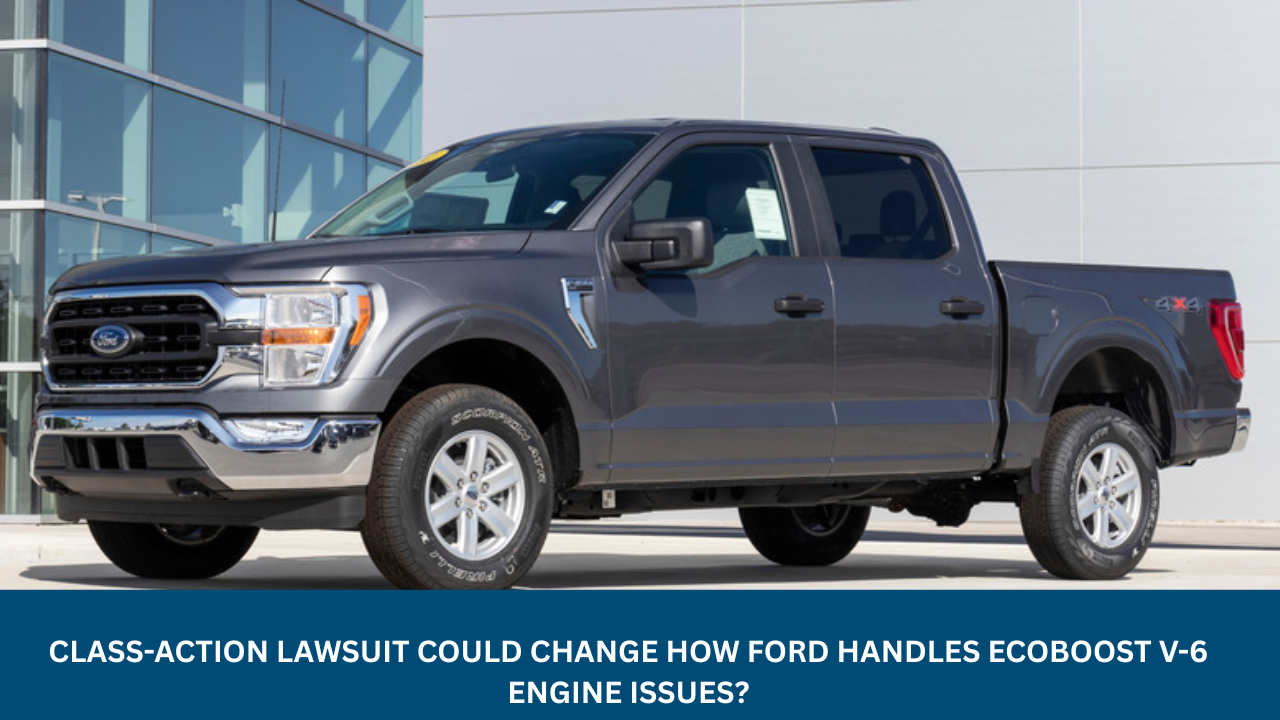Ford has long been known for producing some of the most powerful and efficient engines, and its EcoBoost series has become a significant part of the company’s engine lineup. From the small Ford Fiesta to the muscular 2025 Ford Mustang EcoBoost, Ford’s EcoBoost engines are used in a wide variety of models, including off-roaders and heavy-duty F-Series trucks.
The clever technology behind these engines has even earned Ford prestigious awards over the years. However, it seems that the EcoBoost engines, particularly the twin-turbocharged 2.7l and 3.0l V-6 engines, are facing serious reliability issues, leaving Ford in a legal battle.
While the smaller three-cylinder EcoBoost engines have previously been under scrutiny due to their dependability issues, it’s now the turn of the V-6 EcoBoost engines. A growing number of owners have reported that the intake valves in these engines are prone to cracking and breaking. This issue has led to catastrophic engine failures. Despite Ford’s attempts to fix the problem, the company now finds itself at the centre of a class-action lawsuit that is gaining attention due to the widespread nature of the problem.
What’s Going Wrong With the EcoBoost V-6?
The National Highway Traffic Safety Administration (NHTSA) issued a safety recall report in August 2024, which explained the underlying issues with the EcoBoost V-6 engines. According to the recall notice, the intake valves in these engines are prone to grinding, burning, and over-specification hardness at the third keeper groove location.
Grinding burn refers to damage that occurs during the manufacturing process of the valve. When sanding the valve’s surface, excessive heat can be generated, making the valve too hard and causing it to become brittle. As a result, the valve becomes susceptible to cracking and breaking. When these intake valves fail, the damage can be catastrophic. Ford’s recall notice highlighted that engine failure caused by these faulty valves could result in a “loss of motive power,” making it impossible for the vehicle to function.
The problem affects multiple Ford models, including the Ford F-150, Ford Bronco, Ford Explorer, Ford Edge, as well as the Lincoln Aviator and Lincoln Navigator. Ford has addressed this issue by offering a remedy for affected vehicles, but the cost of repairs has left some customers frustrated.
How Ford is Handling the Recall
Ford has issued a safety recall and has committed to replacing the affected engines with new ones that have valves within specification for hardness. This means that the replacement engines are less likely to suffer the same issues that caused the failures in the original engines.
For vehicles that qualify for the recall, Ford has offered to replace the entire engine free of charge. Ford inspects affected models to determine if they require engine replacement. The replacement engines come with valves that meet the required specifications, reducing the risk of future failures.
However, this solution may not be enough to appease all customers, and many are concerned about the long-term reliability of their vehicles. The recall only affects 2021 and 2022 models, so Ford owners with earlier models or those with cars manufactured outside of the affected window are not eligible for the recall remedy.
The Lawsuit: What Happened?
Two Ford owners, Matthew Barkus from Pennsylvania and Dan Silberman from New York, have filed a class-action lawsuit against Ford over the defective EcoBoost V-6 engines. Barkus, who owns a Ford F-150, and Silberman, who owns a Ford Bronco, both had their vehicles affected by the recall. The lawsuit alleges that they would not have purchased these vehicles had they been aware of the defects in the EcoBoost V-6 engines.

The lawsuit is seeking $5 million in damages, with the two owners claiming that Ford misled them regarding the reliability of their engines. They argue that they should not have to bear the costs of repair, as the defects were inherent in the design of the engines.
Ford, however, maintains that it has made reasonable efforts to address the issue. The company has stated that the affected vehicles will receive free repairs, including the complete replacement of the defective engines. While the lawsuit has drawn attention, it remains unclear whether the plaintiffs will win the case, given Ford’s willingness to rectify the problem at no cost to the affected owners.
Why Are So Many Models Affected?
The recall affects several popular Ford models, including the Ford F-150, Ford Bronco, Ford Explorer, and Ford Edge, as well as Lincoln Aviator and Lincoln Navigator. These models, all produced in 2021 and 2022, were equipped with the twin-turbocharged 2.7l and 3.0l EcoBoost V-6 engines, which are now at the centre of the lawsuit.
Although Ford has provided a solution for affected vehicles, the extensive nature of the recall means that thousands of owners are impacted. The lawsuit highlights the widespread concerns that many drivers have about the reliability of the EcoBoost V-6 engines, particularly since these engines are found in both everyday family vehicles, such as the Explorer and the Bronco, as well as workhorse trucks like the F-150.
For many customers, the issue is not just about the defective engines, but also the inconvenience and potential safety risks associated with engine failure. If the intake valves break unexpectedly, it could leave drivers stranded or cause other forms of damage to the vehicle. Additionally, the cost of replacing an entire engine can be a significant financial burden for many vehicle owners, especially those who are still making payments on their vehicles.
The Road Ahead for Ford
As Ford works through the recall process and continues to address customer concerns, the company is likely to face more legal challenges. While Ford has taken steps to replace defective engines, the growing number of complaints and the class action lawsuit suggest that this issue is far from resolved.
The key question for Ford is whether the company can restore consumer confidence in the EcoBoost engine lineup. While Ford has had success with its EcoBoost technology in the past, this latest issue raises doubts about the reliability of its engines. For consumers, the decision to buy a new Ford may depend on how quickly the company can resolve the lawsuit and prove that the EcoBoost V-6 engines are safe and dependable.
Conclusion
Ford is facing a significant challenge with the recall of the EcoBoost V-6 engine, which affects thousands of owners of Ford’s popular vehicles. As the company works to replace the defective engines and address the class action lawsuit, it remains to be seen how this issue will ultimately affect Ford’s reputation and customer trust in the long run.




